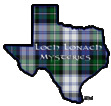Maggie Foster's Blog: Scottish Diaspora
July 7, 2025
Audiobooks Question
Good evening, everyone.
Today I want to ask a question. It’s about using accents in audiobooks, Scottish accents in particular.
Scottish Diaspora is a reader-supported publication. To receive new posts and support my work, consider becoming a free or paid subscriber.
I’m not talking about dialect. Dialect is primarily word choice. If you hear “y’all” or “all y’all” or “bless your heart” you know immediately that the speaker is from Texas or the South. These represent regional vocabulary. No drawl required. You can supply that yourself.
What I’m concerned with is how I react to people pretending to have a Scottish accent, but doing it badly enough that even I, with no formal training and only my own family to listen to, can tell the speaker is not Scottish. I would rather hear the words in a plain, unvarnished English – an Everyman’s version, if you will.
No one disputes that the narrator of an audiobook ought to be easy to understand. But what about character voices?
In creating audiobooks of my novels, I am up against a number of problems. Even the very expensive hire a pro route does not produce Scottish accents done well enough that a trained ear can distinguish between a character from Aberdeen and a character from Glasgow.
Some drop in and out of character, which can be jarring. (There is a commercial running at present where the voiceover does that. You may know which I mean.)
Some are unable to get the vowels right, especially if their own vowels are strongly canted in one direction or another. Some can’t properly roll an “r”. Some can’t do age distinctions—an auld man, for instance when voiced by a woman.
I’m guilty of all of the above.
I’m going to expose myself a bit here. I used to sing opera. At one training session the coach told me he’d never heard a better mimic. We were working in Italian at the time. And he was right. I am a good mimic.
Which brings me to the question. I have an opportunity to record my novels myself and remove the Artificial Intelligence versions that are currently out there.
What do you think? Should I? And if I do, should I attempt to render Angus in a fake Scottish accent? What do you think?
Leave your votes, comments, and suggestions below. I look forward to hearing from you!
Scottish Diaspora is a reader-supported publication. To receive new posts and support my work, consider becoming a free or paid subscriber.
March 24, 2025
Scottishness
There is a discussion – and I use the term advisedly – online about the proper use of the label “Scottish.” Some say only those who were born in Scotland may use the term. Others disagree.
This difference of opinion is not new. It’s been going on as long as I can remember. Nor is it unique to Scotland. Many countries have contributed to the population now living in the United States. The use of “hyphenated-American” labels to describe these groups may be deprecated, but it is descriptive and can be useful.
Nationality:
Citizenship is assigned by a governmental authority. For the purposes of our discussion, it is interesting to note that the nationality of the parents is considered more compelling than the location of the birth. An American servicewoman in Germany who gives birth to a child while serving in Germany produces a new American. The baby is not automatically a German citizen.
Scotland (the country) does not confer nationality. If someone born in Scotland needs a passport, it will be issued by the British issuing authority. British, not Scottish.
British citizenship for children born abroad can be acquired through right of descent, location of birth, or a naturalization process. It depends on the laws of the parents’ home country and those of the country in which the child is born.
For instance, if a child is born to a parent who is a British citizen, but is living abroad at the time of the birth, whether the child can register as a British citizen depends on how the parent claims British citizenship. If the parent was born in the UK, or was living in the UK (there are lengths of residency requirements), then the child is likely to be considered a British citizen. But if the parent claims British citizenship through his or her parent, then the child (in this example, the grandchild) is not automatically a British citizen. Again, it is the nationality of the parents that determines the matter.
Clearly the descendants of the Scots who scattered across the face of the globe do not qualify for British citizenship based on lineage. But does that mean they have no claim to being Scottish?
Ethnicity:
An ethnic group shares a distinctive culture. Culture can be distinguished in the characteristic features of everyday existence shared by people in a place or time. Culture can include food, clothing, styles of art or architecture, music, dance, mating rituals, shared attitudes, values, goals, mores, and much more. In short, culture is what makes a group of people identifiable as different from other groups of people.
I address culture before DNA in this article because of my own experience. During my childhood no one in my family, church, school, or social circle mentioned Scotland even once. In high school I was introduced to bagpipes and kilts, Highland and Scottish country dancing, haggis and whisky.
I knew from the family tree that there were Scots and Ulster Scots in the mix. As time allowed, I began to research what that meant – as an academic exercise, you understand. Mere curiosity. There were some startling discoveries. My grandfather used to sing a nonsense song to us. It turns out it’s a corruption of a very old Scottish ballad. It was not in print. It had never been recorded. It had been passed down orally in the family.
There was more. The hospitality rule required we help those in need long before it became politically correct to do so. Family was central to life and the extended family might have an embarrassing member, but blood was blood. Courage, persistence, and resilience were all required on the playground and in our studies. Honor and honesty were not just empty words. Here’s an example. My father punished me by mistake one day, but when the miscreant confessed, my father came to me and apologized. I was eight.
And more. Pronunciation (vowel sounds, in particular “fer” rather than “for”), vocabulary (How many words have I discovered in my everyday vocabulary that have Scottish roots?), phrases (“Ye look like something the cat dragged in.”), food (Fried chicken was introduced to America by the Scots who pan-fried meat in fat, the precursor to deep fat frying.), and – most telling of all – the thrill I get when I hear bagpipes in the distance. (There is no middle ground with bagpipes. You either love them or you hate them. It has been suggested that the constant sound of the drones begins to irritate the nerves. This has given rise to the phrase “droning on”, which means to talk at length in a monotone.)
DNA:
With the introduction of DNA analysis for genealogical purposes, Pandora’s box was not just opened, it was smashed to flinders. Now people of every description could look to the past, point to an ancestor and say, “Ah, ha! So that’s where I came from!”
Science does not yet have a way to link specific alleles to character traits. We can, however, trace ancestry back to the New World, the Clearances, the Ulster Plantation, and beyond. Which means that, if the real issue is who your parents were and what culture they lived in, the way to decide if someone is “Scottish” is to examine their lives.
The Source of the Animosity:
So why do emotions run so high? Why do some adamantly insist that no one who was not born in Scotland can be even the tiniest little bit “Scottish”?
I think the answer lies in the fear of being subsumed, of losing our identity, of no longer being able to recognize people with whom we have anything in common.
There are benefits conferred by living in groups in general:
There is safety in numbers and many hands make light work.
If the group is large enough, the members can specialize, which means that individuals do NOT have to know everything and be able to do every job to survive. This can lead to opportunities to innovate.
Shared goals and working side by side to accomplish them allows group members to form bonds which can lead to the prosocial behavior of group members who look out for one another, offer emotional support during challenging times, and help others with no thought of reward.
Regular discussions and collaborations within a group enhance the ability to express ideas clearly and listen actively.
There are also specific benefits to belonging to a specific social group:
A specific group provides role models. This helps when it’s time to find a mate.
Belonging to a specific group provides a self-esteem boost. Being included feels better than being excluded. (Sound familiar?)
Group activities help fight isolation. Specific groups will engage in activities that will be familiar to themselves and foreign to outsiders.
Being part of a specific group contributes to the formation of personal identity, shaping how an individual sees herself and how others perceive her.
Navigating group dynamics teaches how to handle conflicts constructively and find mutually beneficial solutions. In specific groups, the rules and expectations tend to be more clearly expressed. (Compare the first day on a new job. Did you already know how to behave toward the other members of the group, including the unspoken hierarchy, or did you have to learn?)
So, why do some people stridently insist that the Scottish Diaspora is not entitled to call themselves Scottish? Because they are using the wrong definition. They are describing nationality instead of cultural identity.
I leave you with two thoughts to consider. The first is that exploring our global Scottish heritage can help us feel more comfortable with it. The second is that heritage comes from our upbringing and social interactions. It’s not like DNA. It can be changed.
“Here’s tae us, wha’s like us, dam’ few an’ their all deid.” [anonymous]
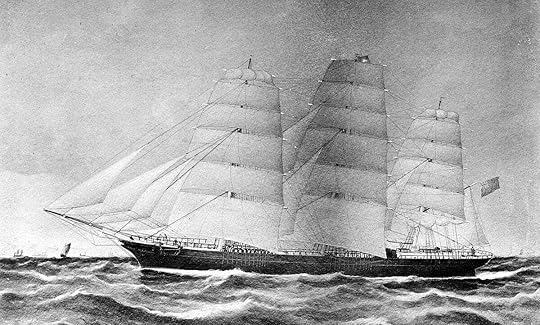 The Aviemore
The AviemoreCourtesy of Wikimedia Commons
April 1, 2024
Was King Arthur a Scot?
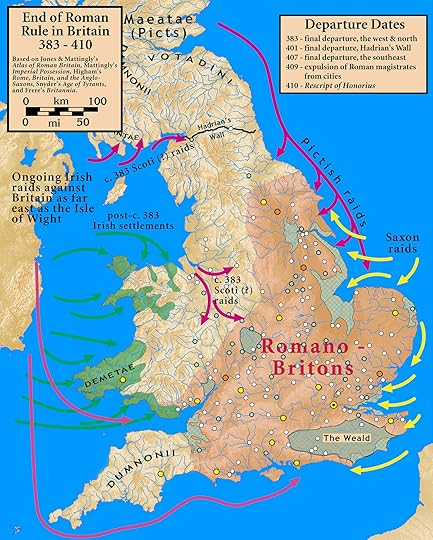
Image - This file is licensed under the Creative Commons Attribution-Share Alike 3.0 Unported license.
Few characters from history are as well-known as King Arthur. Yet his life is shrouded in mystery. To make any kind of guess (educated or otherwise) about the hero claimed as native to every region of Dark Age Britain requires examining the world in whi…
July 1, 2023
The Kilt Makes the Man
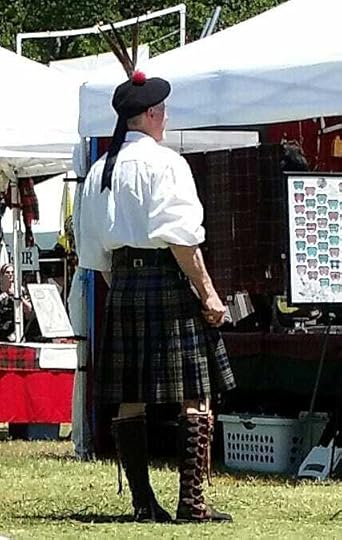
It was lunchtime that day and the staff had gathered behind closed doors to hide from the public. The management had provided tables but no privacy and conversations could be easily overheard. Down the table from me were four women. They were laughing at something, a very natural, honest sound. It hardly registered with me. Then came the stillness.
It wa…
May 28, 2023
Glorious Defeats

The Scots have a checkered military past, with some spectacular wins and a number of epic losses. There are some episodes, too, which can be counted on both sides of the ledger.
So what makes a loss memorable, in a good way?
Boudicca – 60-61 A.D. – She was queen of the Iceni, a Celtic people who lived in East Anglia. They had endured years of taxation, il…
April 29, 2023
Bards and Storytellers
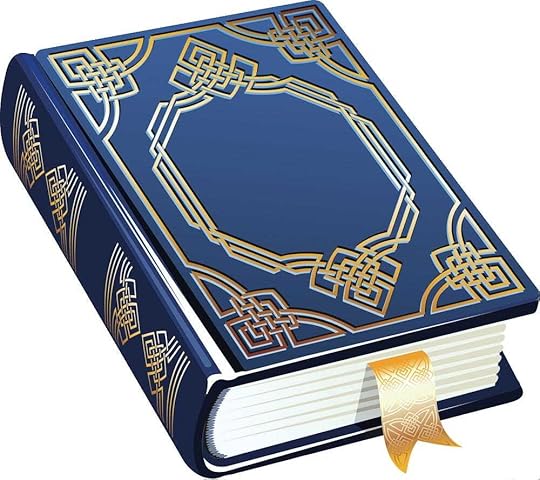
The Scots come out of a culture that relied on oral tradition, rather than the written word. As a result, and as a group, they learned how to memorize and retell a story without changing it, but also how to create a compelling story that people actually wanted to listen to. The combination produced some of the best writers the world has ever known.
In th…
April 3, 2023
The History of Tartan
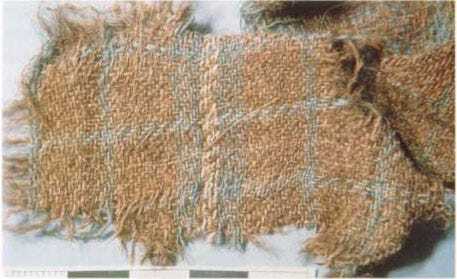
Tarim Basin mummy plaid
Tartan – the quintessential emblem of the Scottish race. Throughout history tartan has been used to indicate familial, regional, and national identities. It is instantly recognizable on the street, in the shops, or flapping in the breeze over castle and cottage and canvas tent. It …
March 25, 2023
The Celtic Church
It may astonish some of my readers to hear that the Christian church arrived in Scotland before the Romans did. Tradition says that Joseph of Arimathea, a tin merchant, sailed to the British Isles taking the young Jesus and his mother, Mary, with him. Joseph is supposed to have founded Glastonbury Abbey, and archeological evidence confirms that “the Ang…
March 17, 2023
The Great Highland Bagpipes
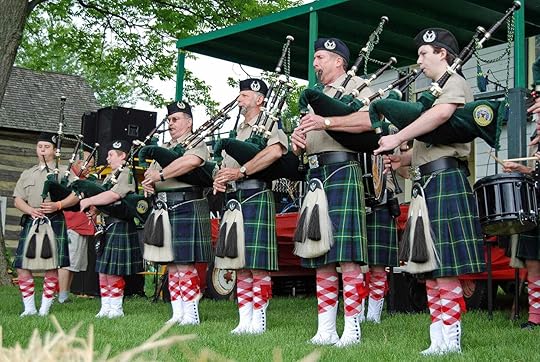
The Scottish bagpipe is the only musical instrument ever to have been designated a weapon of war. It struck fear into the hearts of combatants as the sound could be heard from up to ten miles away, and heralded the approach of some of the fiercest fighters the world has ever known.
Bagpipes have been around for thousands of years. Building on the hollow …
March 11, 2023
The Scots and the Double Helix
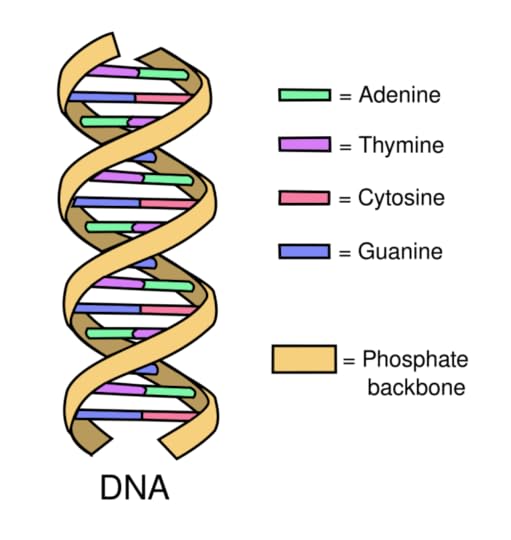
The discovery and description of the genetic code has benefitted from contributions made by Scots as well as scientists from other nations.
1865 – Gregor Mendel (an Austrian) presents his paper on inheritance to the National Science Society. He is mostly ignored.
1869 – Friedrich Miescher (a German) identifies the material now known as DNA, calls it somet…
Scottish Diaspora
It's no secret that the Scots spread out from Scotland for many reasons, to settle all o Diaspora - a population that is scattered across regions which are separate from its geographic place of origin.
It's no secret that the Scots spread out from Scotland for many reasons, to settle all over the world.
Neither is it a secret that the number of people outside Scotland with Scottish ancestors far out numbers the number of people who live in Scotland and have Scottish ancestors.
What may be less well known is that the early inhabitants of Scotland came from all over the inhabited world. The DNA studies are fascinating.
This series of articles deals with both groups, past and present: those who are living in Scotland, or who lived in Scotland at the time they became newsworthy, and those who became newsworthy while in other parts of the world. The posts are the result of the research I do for my murder mysteries. I hope you will find them interesting.
*For still the blood is strong.*
From the “Canadian Boat Song”, Anonymous. Translated from Gaelic ...more
- Maggie Foster's profile
- 17 followers


